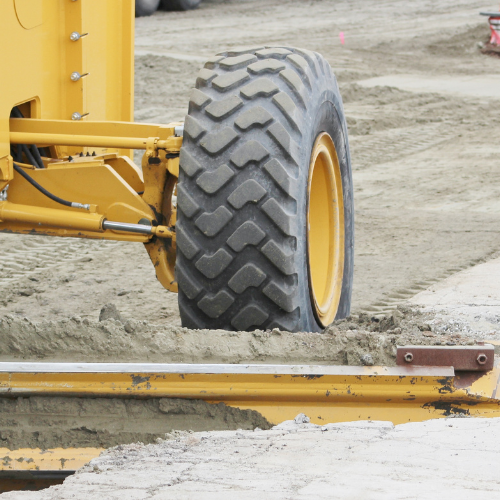
The Complete Guide to Land Grading in Construction
Share
Before any structure can be built — whether it’s a home, road, or commercial development — the land beneath it must be properly prepared. One of the most important steps in site preparation is land grading, the process of reshaping and leveling soil to create a stable, even foundation. Without accurate grading, issues like poor drainage, soil erosion, and structural instability can compromise an entire project.
At In2it Earthmoving & Construction, we specialise in delivering precise land grading services for residential, commercial, and civil projects throughout Brisbane, Logan, Redland, Scenic Rim, and the Gold Coast.

What Is Land Grading?
Land grading is the process of adjusting the slope and contour of a piece of land to ensure proper drainage, stability, and usability. Unlike basic excavation, which focuses on removing or moving soil, grading requires precision to shape the ground for its intended purpose.
Common goals of land grading include:
- Creating a level base for foundations, driveways, and roads
- Ensuring water flows away from structures to prevent flooding or damage
- Improving soil stability for landscaping or civil works
- Meeting the council and engineering specifications for slope and drainage
Why Land Grading Matters
-
Foundation Stability
Every strong structure begins with a stable base. Grading ensures that the soil is evenly compacted and at the correct level to support load-bearing foundations. -
Drainage Control
Poorly graded land can cause water pooling, erosion, and long-term damage to buildings. Proper grading prevents these issues by directing water away safely. -
Erosion Prevention
In areas with heavy rainfall like Brisbane and the Gold Coast, improper slopes can quickly erode soil. Grading protects landscapes and infrastructure. -
Compliance with Regulations
Local councils have strict standards for slope, drainage, and site preparation. Accurate grading keeps your project compliant and avoids costly delays. -
Aesthetic and Functional Benefits
Beyond structural safety, grading improves the usability and appearance of land, whether for gardens, roads, or commercial landscaping.
Types of Land Grading
Different projects require different grading approaches:
- Rough Grading – Bulk soil movement to establish general elevations
- Finish Grading – Fine adjustments for precision and smooth surfaces
- Drainage Grading – Shaping slopes to direct stormwater flow
- Landscape Grading – Creating contours for gardens, lawns, or outdoor areas
- Road & Driveway Grading – Establishing stable surfaces for traffic and vehicles
Challenges in Land Grading
Land grading can be complex due to:
- Variable soil conditions (clay, sand, or rocky ground)
- Steep or uneven terrain that requires specialised machinery
- Unpredictable weather affecting soil moisture and compaction
- Regulatory compliance with local councils and building codes

Why Choose In2it Earthmoving & Construction
- Local Expertise: Serving Brisbane, Logan, Redland, Scenic Rim, and the Gold Coast since 2016.
- Modern Equipment: From mini combos to 14-ton excavators, we use the right tools for every project.
- Safety First: Our team follows strict safety standards and compliance requirements.
- Full-Service Solutions: From excavation and grading to trenching and site preparation.
- Proven Track Record: Trusted by homeowners, builders, and civil contractors for reliable results.
Conclusion
Land grading is more than just moving dirt — it’s about creating a safe, stable, and functional foundation for construction. From drainage control to foundation stability, proper grading sets the stage for everything that follows.
At In2it Earthmoving & Construction, we bring the expertise, equipment, and attention to detail needed to deliver accurate, compliant, and long-lasting results. If you’re planning a residential, commercial, or civil project in Brisbane, Logan, Redland, Scenic Rim, or the Gold Coast, contact us today for a free quote and site assessment.
Frequently Asked Questions (FAQs)
Q: How much does land grading cost?
Costs depend on site size, soil type, slope complexity, and the amount of earthmoving required. In2it provides free estimates tailored to your project.
Costs depend on site size, soil type, slope complexity, and the amount of earthmoving required. In2it provides free estimates tailored to your project.
Q: Do I need council approval for land grading?
In many cases, yes — especially for major projects. We can guide you through local council requirements in Brisbane, Logan, and surrounding areas.
In many cases, yes — especially for major projects. We can guide you through local council requirements in Brisbane, Logan, and surrounding areas.
Q: How long does land grading take?
Small residential jobs may take a day or two, while large-scale commercial grading may require weeks, depending on weather and site conditions.
Small residential jobs may take a day or two, while large-scale commercial grading may require weeks, depending on weather and site conditions.
Q: What equipment is used for land grading?
Excavators, skid steers, graders, rollers, and GPS-guided machinery are commonly used to achieve precision results.
Excavators, skid steers, graders, rollers, and GPS-guided machinery are commonly used to achieve precision results.
